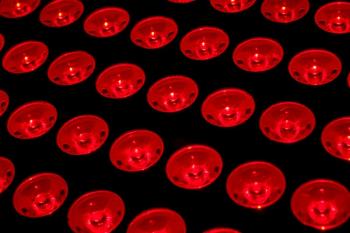
- February digital edition 2024
- Volume 16
- Issue 02
Annexon outlines 2024 strategy for ANX007 for geographic atrophy
The ANX007 global pivotal program is the first to use vision preservation as a primary outcome measure in GA.
Annexon, Inc, outlined its strategic priorities for 2024 with late-stage clinical milestones, including ANX007 for geographic atrophy (GA).
“Our distinct classical complement portfolio has been built over 10 years of research focused on stopping C1q-driven inflammation activated on diseased tissue in complement-mediated diseases of the body, brain, and eye,” Douglas Love, president and CEO of Annexon, said in a news release. “The robust and consistent functional outcome data generated by our flagship and next-wave programs [have] reinforced our founding thesis of stopping the classical complement disease process where it starts.”
The company’s pipeline also includes ANX005 for Guillain-Barré syndrome, and ANX1502 for a range of autoimmune indications.1
“This is a pivotal time for Annexon, with registration programs for our 2 lead candidates, numerous late- and mid-stage clinical catalysts expected across our portfolio, and a strong balance sheet to fuel our priority programs to meaningful inflection points,” Love added in the news release. “We are proud of what we’ve accomplished over our decade-long history and are excited by the potential to achieve our goal of bringing transformative therapies to millions of patients with debilitating autoimmune, ophthalmic, and neurodegenerative diseases.”
About ANX007
The company said in its news release it hopes to kick off its global registration program in GA, with vision preservation as the primary outcome measure, during the first half of 2024.1
- GA is an advanced form of dry age-related macular degeneration (AMD), an eye disease that is the leading cause of vision loss in older individuals and that affects an estimated 8 million people globally.
- In the randomized, multicenter, double-masked, sham-controlled phase 2 ARCHER clinical trial (NCT04656561), ANX007 was the first and only agent to show statistically significant and consistent protection against vision loss in a broad population of patients with GA.
According to the news release, Annexon plans to initiate ARCHER II, a global, sham-controlled phase 3 clinical trial in patients with GA in mid-2024. ARCHER II is designed to confirm the results from the phase 2 ARCHER trial and potentially expedite the path to regulatory approval of ANX007 in Europe.
Moreover, Annexon noted in its news release that it also plans to initiate the ARROW clinical trial, an injection-controlled head-to-head study against pegcetacoplan injection (Syfovre) in late 2024. ARROW has the potential to underscore ANX007’s unique mechanism of action and provide critical differentiation on visual function.
The company further noted that ANX007 is the first therapeutic candidate for the treatment of GA to receive PRIME designation by the European Medicines Agency. This provides early and proactive support to developers of promising medicines that may offer a major therapeutic advantage over existing treatments or benefit to patients without treatment options.
Reference:
Annexon outlines 2024 priorities with late-stage clinical milestones across upstream complement portfolio for autoimmune, ophthalmic and neurodegenerative diseases. News release. Annexon Biosciences. January 7, 2024. Accessed January 8, 2024. https://www.globenewswire.com/news-release/2024/01/08/2805026/0/en/Annexon-Outlines-2024-Priorities-with-Late-Stage-Clinical-Milestones-Across-Upstream-Complement-Portfolio-for-Autoimmune-Ophthalmic-and-Neurodegenerative-Diseases.html
Articles in this issue
almost 2 years ago
Meibomian gland dysfunction: At-home treatment devicesalmost 2 years ago
IKA Keratoconus Symposium: Traversing new groundalmost 2 years ago
As at-home dry eye treatments boom, the importance of compliance risesalmost 2 years ago
Multifocal contact lens optics optimize the patient experiencealmost 2 years ago
A new era of assistive technology for patients with low visionalmost 2 years ago
Beyond pharmaceuticals: Slowing the progression of AMD via nutritionalmost 2 years ago
What motivates you and your patients in myopia management?almost 2 years ago
How to get the most out of topical glaucoma therapiesNewsletter
Want more insights like this? Subscribe to Optometry Times and get clinical pearls and practice tips delivered straight to your inbox.




























